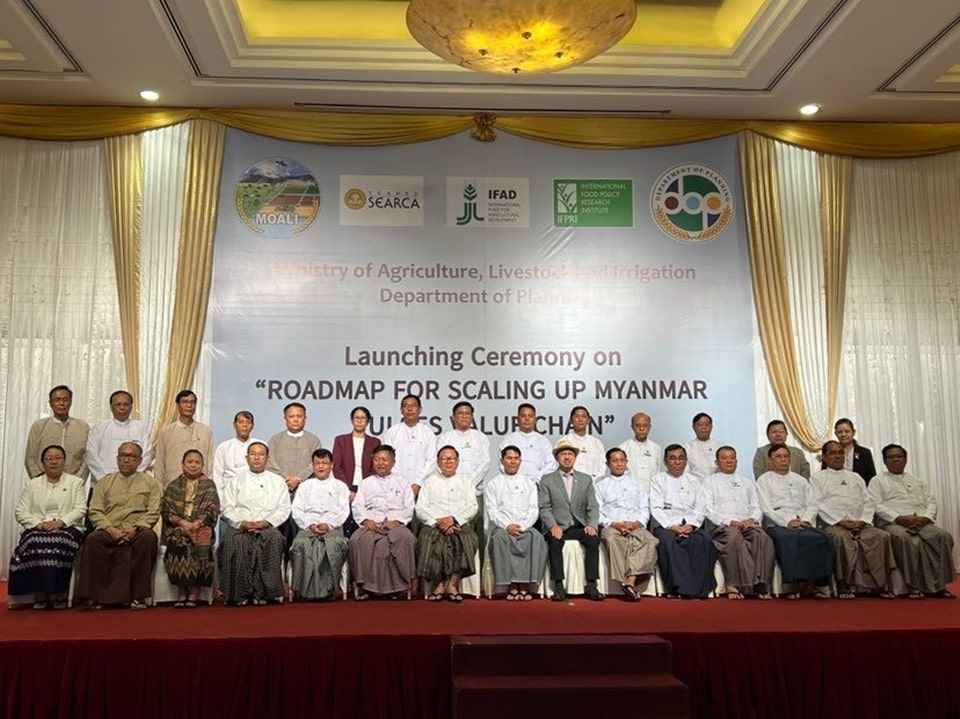
The Ministry of Agriculture, Livestock, and Irrigation (MOALI) of Myanmar recently launched its national pulses roadmap on14 March 2023 at the Thingaha Hotel in Nay Pyi Taw. The Roadmap for Scaling Up Myanmar Pulses Value Chain (2021–25) was developed under the recently completed International Fund for Agricultural Development (IFAD)-funded project, “Agricultural Transformation and Market Integration in the ASEAN Region: Responding to Food Security and Inclusiveness Concerns” (ATMI-ASEAN). The project was co-implemented by the International Food Policy Research Institute (IFPRI) and the Southeast Asian Regional Center for Graduate Study and Research in Agriculture (SEARCA).
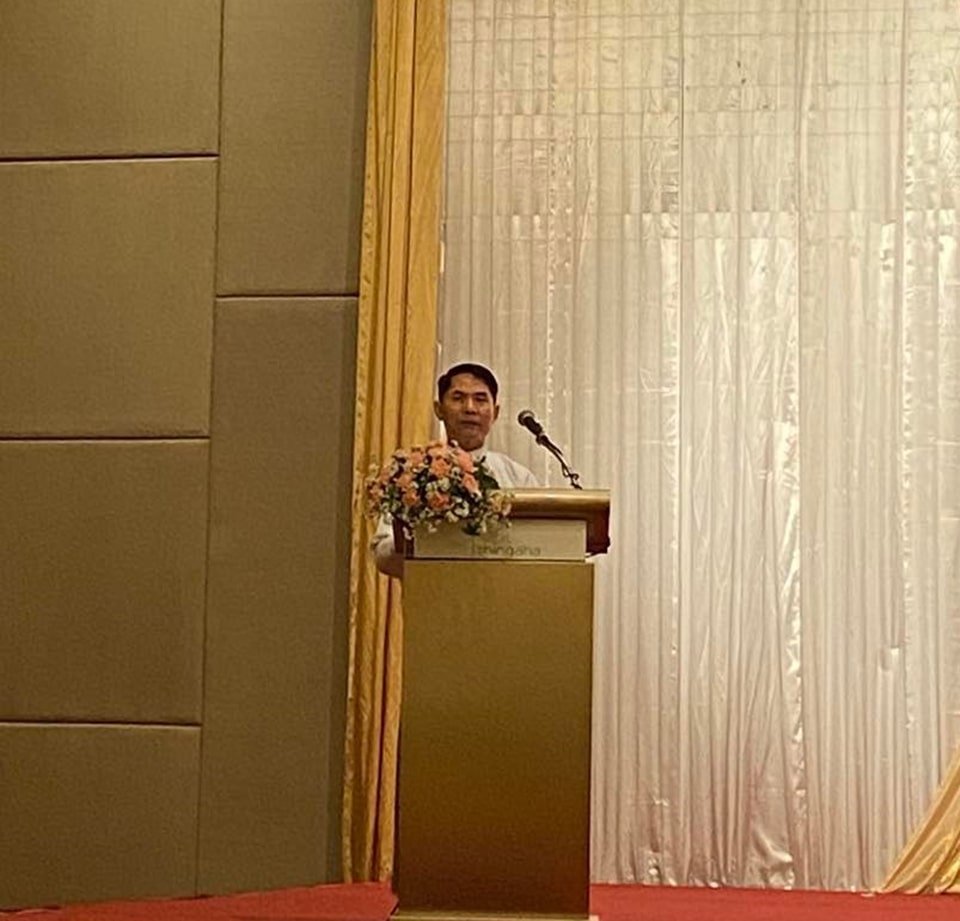
His Excellency U Min Naung, MOALI union minister, opened the program by expressing his sincere appreciation to all the guests for attending the launch event. He also thanked IFAD, IFPRI, and SEARCA, for the technical assistance and capacity-building support provided for the development of the national pulses roadmap.
Being one of the largest producers and exporters of pulses in the world, Myanmar’s development of its national pulses roadmap is essential for its economy and sustained prosperity, according to Minister U Min Naung. He ensured that this roadmap is in line with the country’s existing policies and strategies. The roadmap aims to foster a demand-driven pulses sector that is propelled by modernization, diversification, intensification, and value-addition. Also, Minister U Min Naung encouraged all pulses value chain actors to work together to achieve the goal of having a globally competitive pulses industry that could support the livelihood and socioeconomic wellbeing of smallholder farmers in Myanmar.
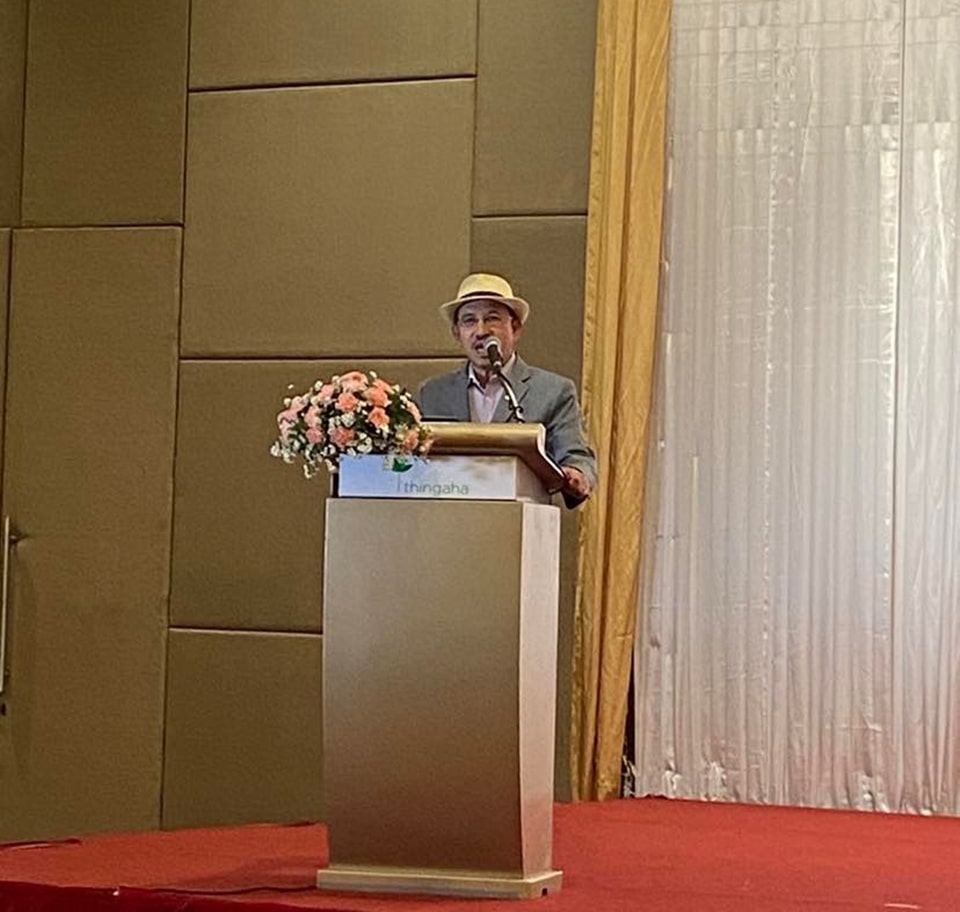
Representing SEARCA and the ATMI-ASEAN Project, Dr. Glenn B. Gregorio, congratulated MOALI, the members of the roadmapping team, and all the stakeholders involved in the successful completion of the national pulses roadmap. Being a key industry in Myanmar, pulses are important in the country’s rural transformation, according to Dr. Gregorio.
With MOALI’s hard work and dedication, the national pulses roadmap is not only an accomplishment of the ATMI-ASEAN project, but also of the country. Dr. Gregorio also expressed SEARCA’s commitment to continuously support the development of agricultural value chains and elevate the quality of life of agricultural families in Myanmar and the whole Southeast Asian region.
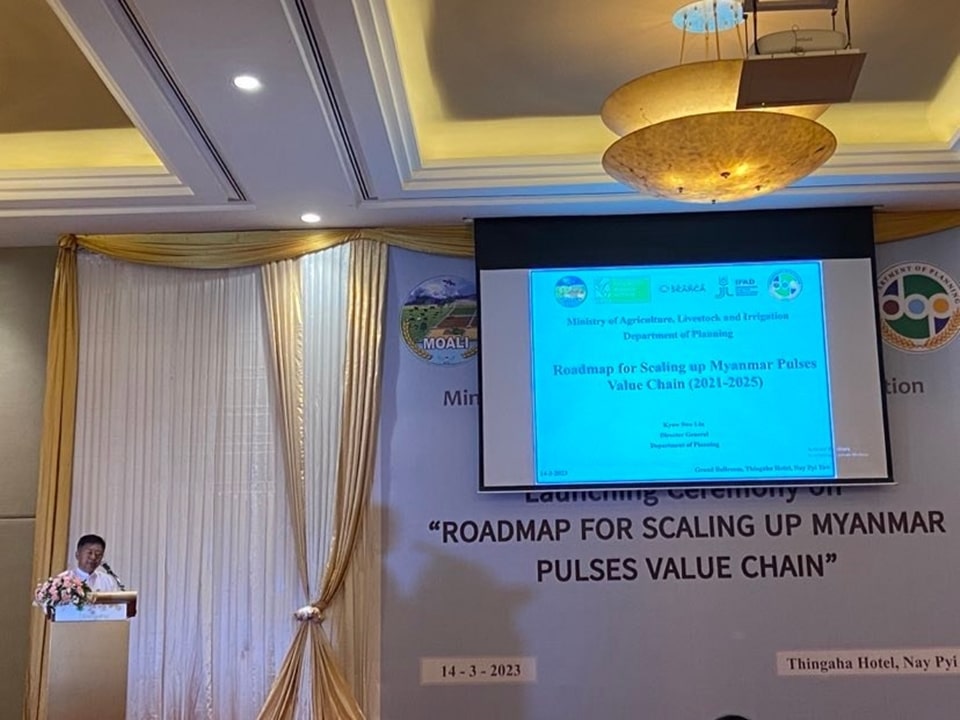
Director General U Kyaw Swe Lin of the Department of Planning of MOALI presented the highlights of the national pulses roadmap. The roadmap envisions a “progressive and productive pulses sector through a more inclusive, integrated, resilient, and globally competitive and recognized pulses value chain to contribute to rural economic growth of Myanmar,” said DG U Kyaw Swe Lin. He added that the vision would be achieved by strengthening governance and institutions, market development, research, and development, and extension, among other strategies. He stressed that to achieve a globally competitive pulses sector, it is crucial to develop the pulses value chain to enable market integration. Despite the recent import restrictions imposed by India, Myanmar’s top pulses importer, the country has been continuously producing 7.28 million metric tons of pulses annually. With this, MOALI intends to focus more on value addition rather than the export of raw pulses.
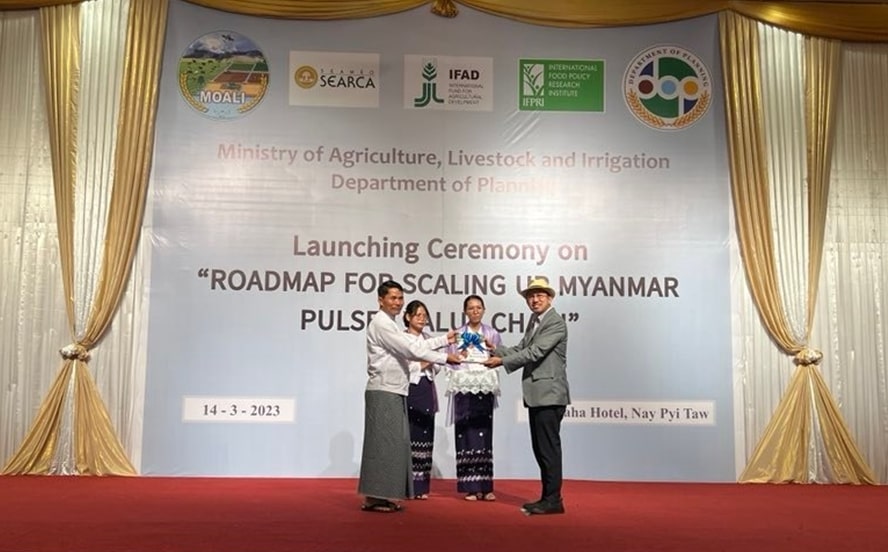
MOALI Union Minister U Min Naung and Deputy Ministers Dr. Aung Gyi and Dr. Tin Htut presented the Roadmap for Scaling Up Myanmar Pulses Value Chain (2021–25) to officials of various local institutions: Department of Irrigation and Water Utilization Management, Department of Agricultural Land Management and Statistics, Department of Agricultural Mechanization, Department of Agricultural Research, Department of Agriculture, Department of Trade, Department of Consumer Affairs, Myanmar Trade Promotion Organization, and Yezin Agricultural University, as well as to the members of the pulses roadmapping team and SEARCA.
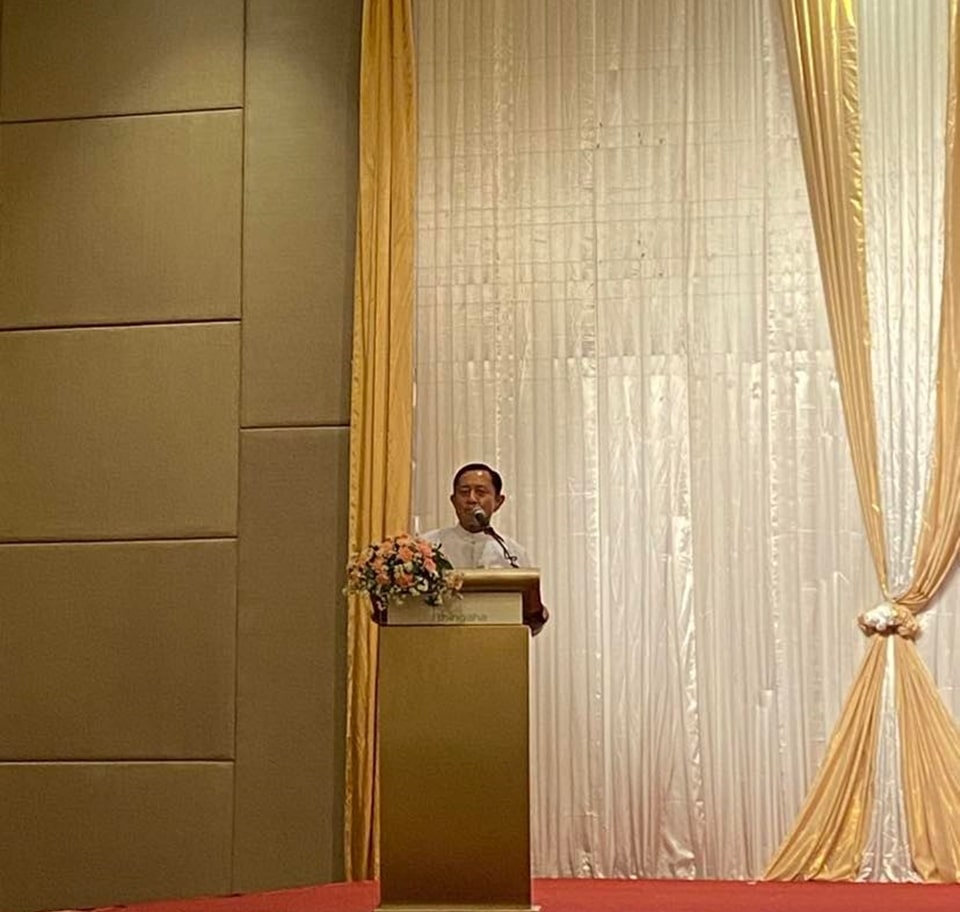
His Excellency Dr. Tin Htut, deputy minister of MOALI and SEARCA senior fellow, officially closed the launching event. Dr. Tin Htut thanked everyone, who were involved in the development of the national pulses roadmap, as well as the ATMI-ASEAN project team for their technical assistance. He also thanked SEARCA for its presence and unwavering support to MOALI and Myanmar despite the ongoing challenges faced by the country. With this, he called for further collaboration between the two agencies particularly in areas of human resource development, project management, and agricultural extension.
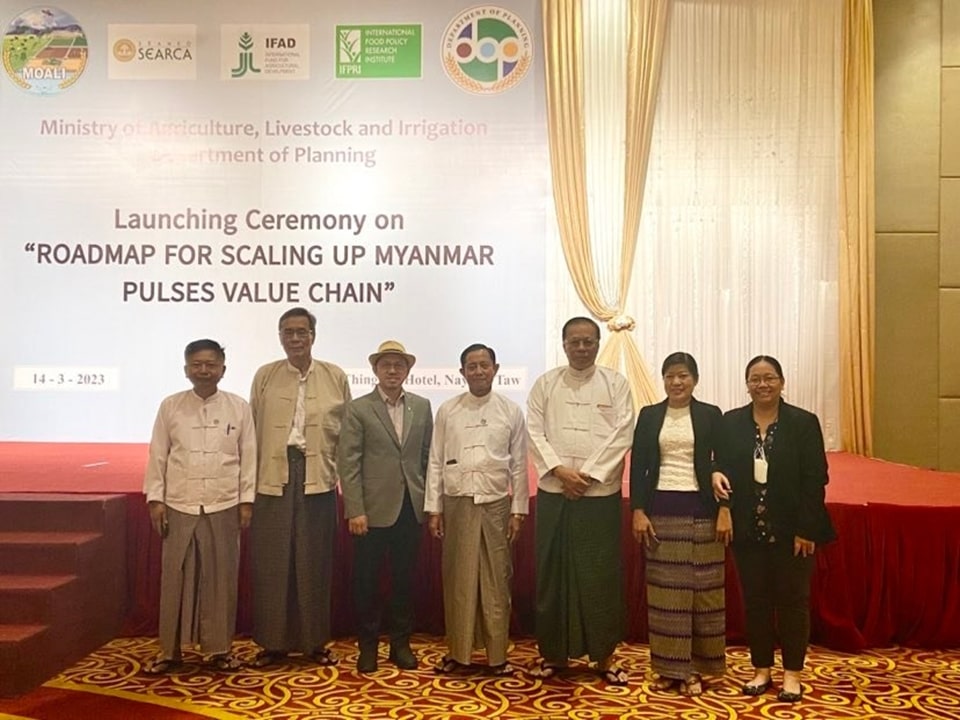
Myanmar is one of the five Southeast Asian countries that were supported by the ATMI-ASEAN project in developing and implementing policies and programs that would help the integration of smallholders in the regional agricultural and food markets.